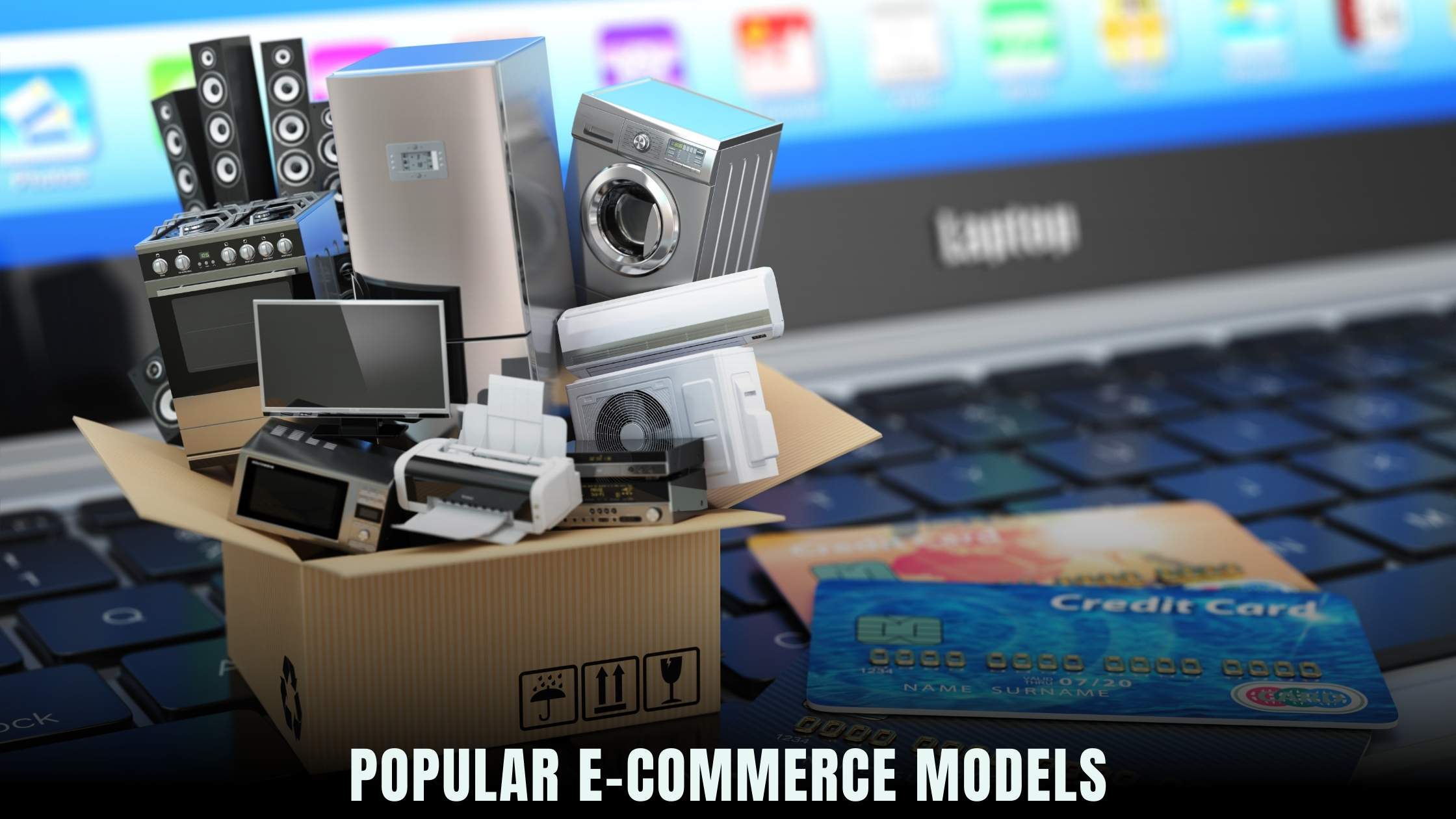Popular E-commerce Models: Analyzing Trends


In the ever-evolving landscape of e-commerce, businesses are constantly exploring different models to stay competitive and meet the changing demands of consumers. From traditional retail to innovative direct-to-consumer approaches, the e-commerce industry offers a diverse array of models for businesses to consider. In this article, we’ll delve into some of the most popular e-commerce models, analyzing trends, advantages, and considerations for businesses looking to thrive in the digital marketplace.
Understanding E-commerce Models
E-commerce models define the structure and strategy that businesses employ to sell products or services online. Each model comes with its unique set of advantages, challenges, and target audiences, catering to different business objectives and market dynamics. By understanding the various e-commerce models available, businesses can make informed decisions about which approach best aligns with their goals and resources.
1. Business-to-Consumer (B2C) Model
The Business-to-Consumer (B2C) model is perhaps the most well-known e-commerce model, involving transactions between businesses and individual consumers. In this model, businesses sell products or services directly to end-users through online storefronts, marketplaces, or digital platforms. B2C e-commerce encompasses a wide range of industries, from retail and fashion to electronics and entertainment, offering convenience, accessibility, and a seamless shopping experience for consumers.
2. Business-to-Business (B2B) Model
Contrary to the B2C model, the Business-to-Business (B2B) e-commerce model involves transactions between businesses, where one company sells products or services to another for use in their operations or resale. B2B e-commerce platforms facilitate bulk orders, negotiations, and long-term partnerships between businesses, serving industries such as manufacturing, wholesale, and distribution. B2B e-commerce streamlines procurement processes, reduces costs, and fosters collaboration between business partners.
3. Direct-to-Consumer (D2C) Model
The Direct-to-Consumer (D2C) model has gained significant traction in recent years, particularly among digitally native brands and startups. In this model, businesses bypass traditional retail channels and sell products directly to consumers through their own online channels, such as websites, social media, and email marketing. D2C brands prioritize customer relationships, brand storytelling, and product innovation, leveraging data and analytics to personalize the shopping experience and build brand loyalty.
4. Marketplace Model
Marketplace e-commerce platforms bring together sellers and buyers in a centralized online marketplace where transactions occur between multiple parties. Examples of marketplace models include Amazon, eBay, and Etsy, where third-party sellers list their products or services on the platform, and consumers can browse, compare, and purchase items from various sellers. Marketplace models offer scalability, variety, and convenience for both sellers and consumers, but businesses must compete with other sellers and adhere to platform regulations.
5. Subscription Model
The Subscription e-commerce model involves selling products or services to customers on a recurring basis, typically through subscription plans or memberships. Subscription-based businesses offer convenience, cost savings, and personalized experiences for customers, who receive regular deliveries of products or access to services based on their subscription tier. Examples of subscription e-commerce include streaming services like Netflix, meal kit deliveries like HelloFresh, and subscription boxes for beauty or lifestyle products.
Relevant SaaS Products for E-commerce
- Shopify: Shopify is a leading e-commerce platform that enables businesses to create online stores, manage inventory, process payments, and optimize marketing campaigns. With features such as customizable storefronts, order management, and integrations with third-party apps, Shopify empowers businesses of all sizes to sell products online effectively.
- Magento: Magento is an open-source e-commerce platform that offers flexibility, scalability, and customization options for businesses looking to build unique online storefronts. With features such as powerful product management, SEO capabilities, and mobile responsiveness, Magento enables businesses to create engaging shopping experiences for customers across channels.
- BigCommerce: BigCommerce is a cloud-based e-commerce platform that provides everything businesses need to sell online, from building storefronts to managing orders and optimizing conversions. With features such as multi-channel selling, advanced analytics, and built-in SEO tools, BigCommerce helps businesses attract customers and drive sales across channels.
- WooCommerce: WooCommerce is a customizable e-commerce plugin for WordPress that allows businesses to turn their websites into fully functional online stores. With features such as flexible product management, secure payment options, and extensive customization capabilities, WooCommerce enables businesses to create personalized shopping experiences for their customers.
- Squarespace: Squarespace is an all-in-one website builder that includes e-commerce functionality, making it easy for businesses to create stunning online stores without any coding knowledge. With features such as customizable templates, integrated marketing tools, and built-in analytics, Squarespace enables businesses to launch and grow their e-commerce operations quickly and efficiently.
Leveraging Subscribed.FYI Deals for E-commerce Solutions
For businesses seeking to enhance their e-commerce operations, Subscribed.FYI offers a curated selection of SaaS products that provide essential tools and resources for building, managing, and scaling online stores. From e-commerce platforms and payment gateways to marketing automation and analytics tools, Subscribed.FYI Deals provides access to innovative solutions that can help businesses succeed in today’s competitive e-commerce landscape.
Relevant Product Links:





